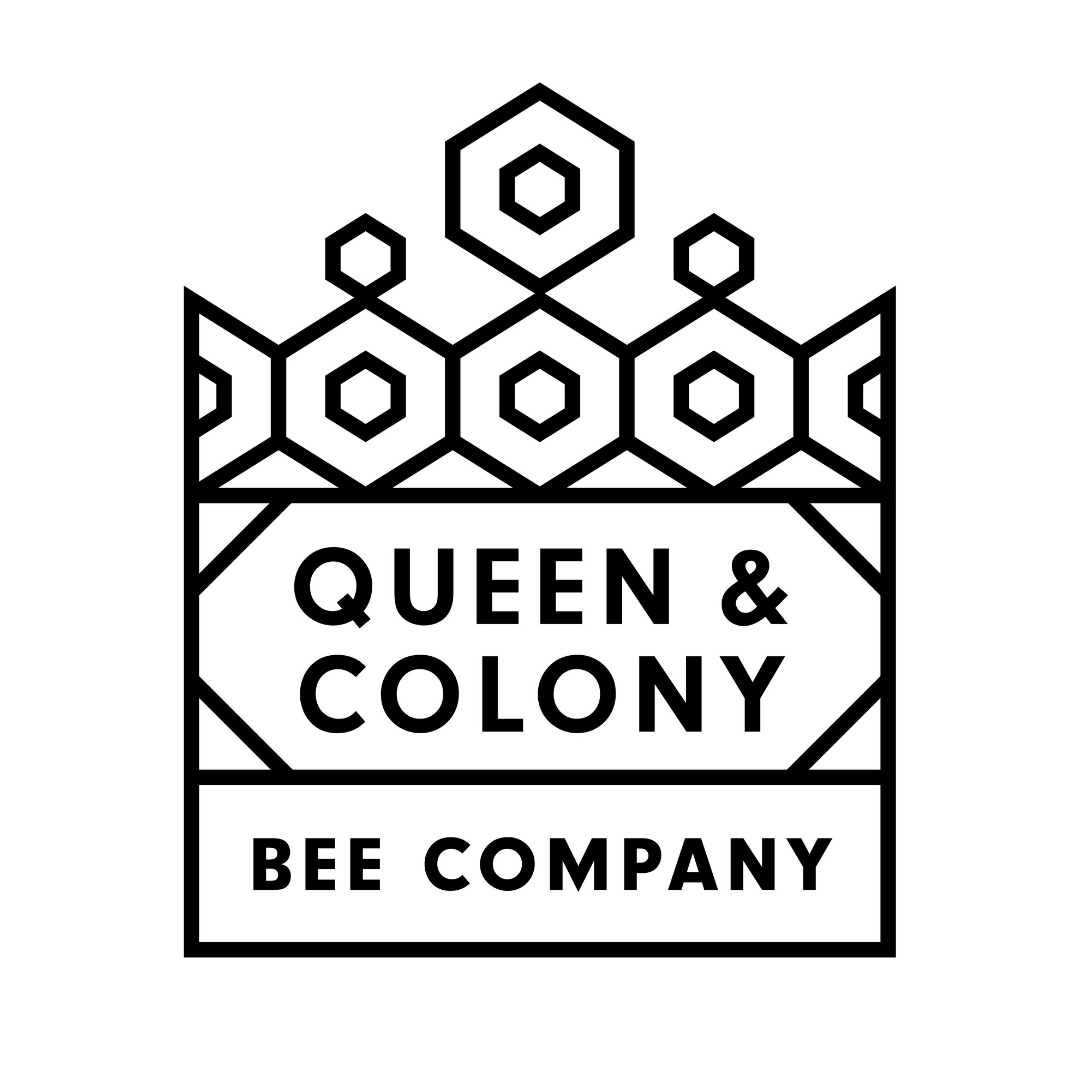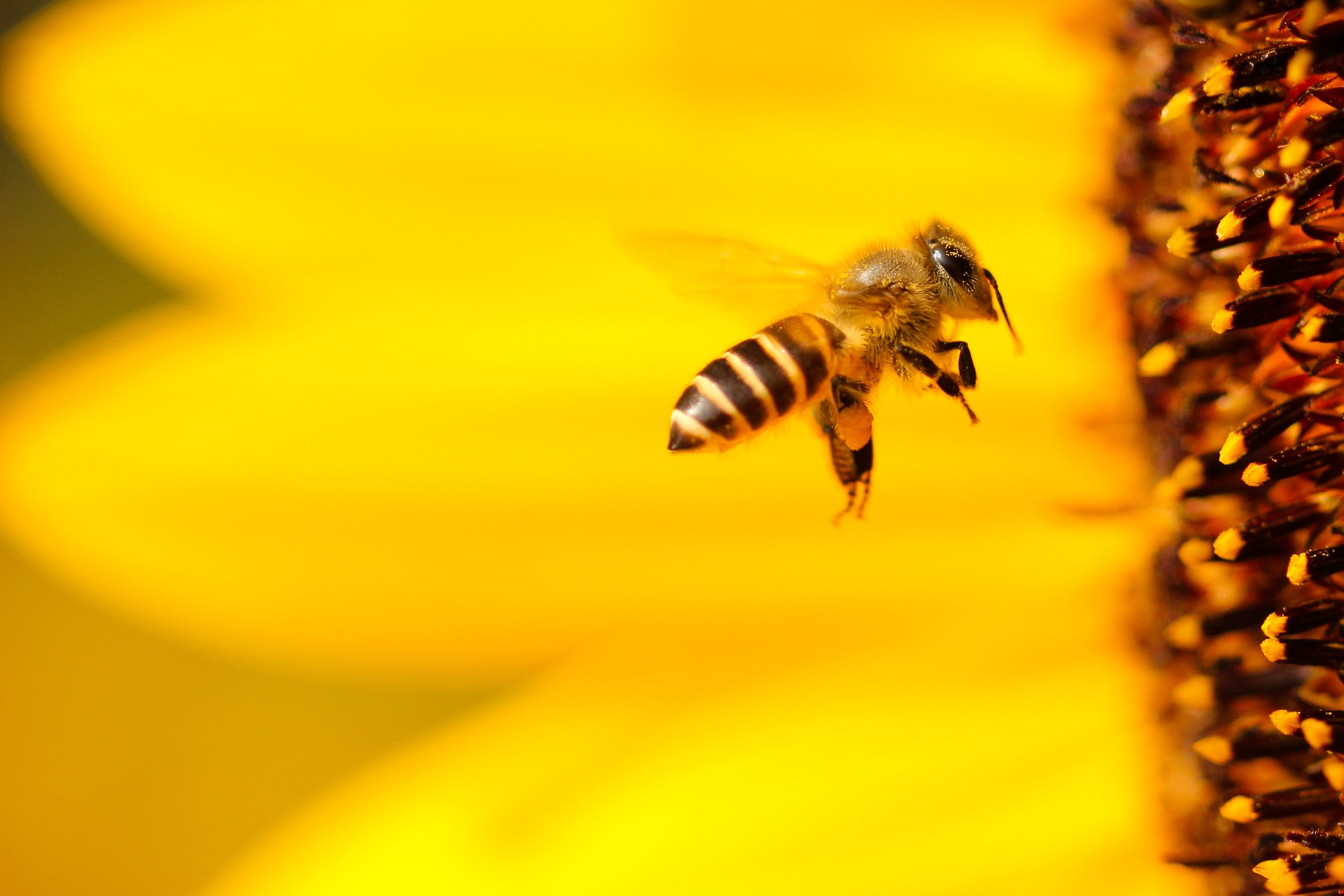Save the Bees!
You’ve probably heard something about bees dying. It’s not just honeybees that are in trouble. There are more than 3,000 different bee species in the United States alone. In 2016, there were 7 species classified as endangered by the U.S. Fish and Wildlife Service. Today, 1 in 4 wild bee species in the U.S. are at risk of extinction.
In the honeybee industry nearly 1/3 of managed honeybee colonies die every year. This is a huge problem! Especially since about 1/3 of the food we eat relies on honeybees for pollination. The factors that contribute to the decline of bee health are multi-fold. They include, but are not limited to:
Pests and disease.
Especially devastating to honeybees in the U.S. has been the introduction of the varroa mite from Asia. These mites feed on the bees and developing larvae, spreading harmful viruses that most often kill the entire colony if left untreated.
Habitat Loss
Monoculture farming practices have destroyed biodiversity in the farmlands where pollinators once thrived. In most places where bees are needed for crop pollination, there is only sufficient forage to support bees a few weeks out of the year when the single crop that is being farmed is in bloom.
Widespread Pesticide and Herbicide Use
Mainstream farming practices rely heavily on insecticide and herbicide use. Since bees are insects it is obvious that insecticides are harmful to bees, either killing them outright or weakening them to the point of eventual colony collapse.
Herbicides are also harmful to bees. Herbicides contribute to habitat loss by killing the weeds along field edges and between orchard rows that bees used to feed on throughout the season. Recent studies have also shown that Glyphosate, the active ingredient in Roundup, disrupts the honeybee’s healthy gut bacteria, making them more susceptible to disease.
How You Can Help Save Bees?
Support Local Beekeepers
Beekeepers are on the front lines of fighting for the well being of bees. Our livelihoods depend on our bee’s health. From developing new management techniques, to lobbying governmental authorities on behalf of bee health; beekeepers are involved on every level of figuring out solutions to the perils bees are facing. When you support local beekeepers by buying local honey and hive products you are also supporting local bees.
Support Organic Farming
Small scale organic farms are one of the solutions to the habitat loss bees are experiencing under large scale monoculture farming practices. By supporting organic farming, you are supporting a healthy and safe environment for bees.
Stop Using Insecticides and Herbicides on Your Lawn
Don’t contribute to the collapse of bees. Be part of the solution! Create a healthy habitat for pollinators in your own lawn. Instead of spraying a weed with herbicide, reach down and pull it by hand. Better yet, let it grow and flower. It’s pollen and nectar may provide a nutritious meal for a bee.
Plant a Pollinator Garden
You can help bees by planting flowers and trees that will be beneficial to pollinators.
Don’t Exterminate Bees.
If you end of having a swarm of honeybees move in a little too close for comfort, like in the wall of your house, don’t have them exterminated. Instead find a local Live Bee Removal Expert who can safely relocate your bees to an apiary. There they will no longer be nuisances but rather vital contributors to your community.
Bee decline isn’t caused by one big problem, but rather a whole bunch of small problems coming together to form a big problem.
The solution isn’t one big solution either, rather it’s a bunch of small solutions coming together to form a big solution. Each one of us has the opportunity to be a part of the solution!

